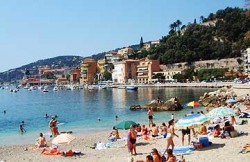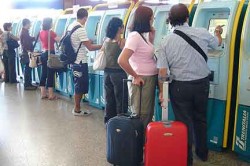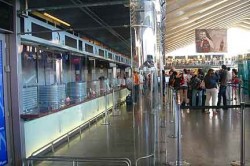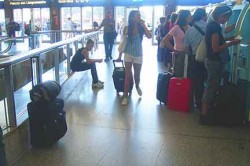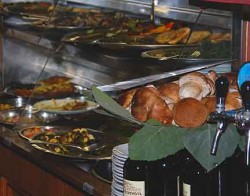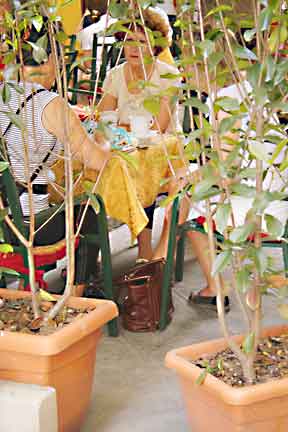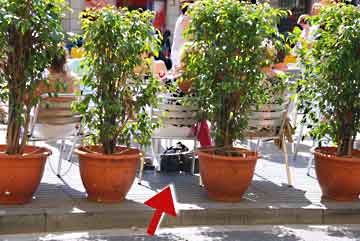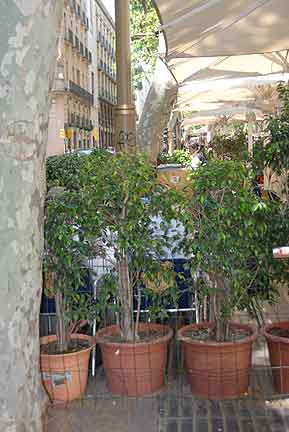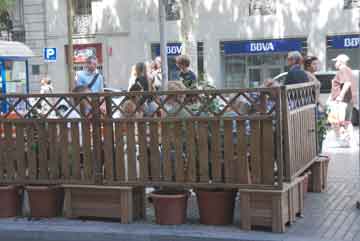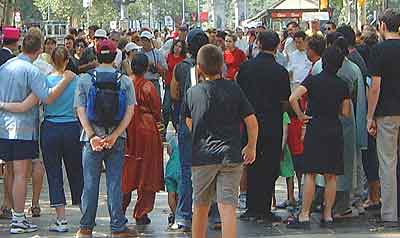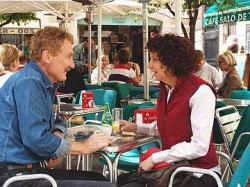
Should Have Left it in the Hotel—Gisela and Ludvig Horst checked into their Barcelona hotel and immediately got into an argument. Gisela did not feel comfortable leaving their valuables in the room, though Ludvig was insistent that they should. They’d just arrived from Germany for an Herbalife convention. With 30,000 international participants in town, each sporting big I-heart-Herbalife buttons, every Barcelona hotel was fully booked. The Horsts ended up in the same small, semi-seedy inn Bob and I had chosen for our semi-seedy research. We met them at breakfast the morning after.
The Horsts went out for their evening exploration with everything in Gisela’s purse. They joined another Herbalife couple for drinks at an outdoor café on La Rambla. The avenida was lively, the June weather delightful. Gisela was enthralled by the entertaining parade of strollers, yet she never forgot caution. Conscious of the value her purse contained, she held it on her lap. The foursome ordered sangriá and let the Spanish nightlife swirl around them.
If the Horsts’ cash and passports had been stolen from their hotel room, one might fault them for leaving their things unsecured. Had Gisela hung her purse from the back of her café chair, one could chastise her severely. Had she put it on the ground, out of sight, out of mind, she could be blamed. But Gisela’s handbag was securely cradled right under her nose.
Thinking back, Gisela remembered a middle-aged man seated alone at a table behind them. Was it him? She also sensed the bulk of a man moving behind her and had assumed it was a waiter. Without warning, her bag was snatched right off her lap.
The Horsts lost everything. Besides the tremendous paperwork hassle, the mood of their trip was ruined and Gisela was badly traumatized. She blamed herself and lost confidence in her judgment, though she was hardly at fault.
Personal security is an art, not a science. Information and awareness are everything. In the Horsts’ situation, I may have done exactly as Gisela did, had I been lacking a suitable suitcase to use as a safe. However, I’d try to split up my goodies, and put as much as possible on my body instead of in a grabbable bag.
Excerpt from Travel Advisory: How to Avoid Thefts, Cons, and Street Scams
Chapter Four (a part of): Hotels: Have a Nice Stay



